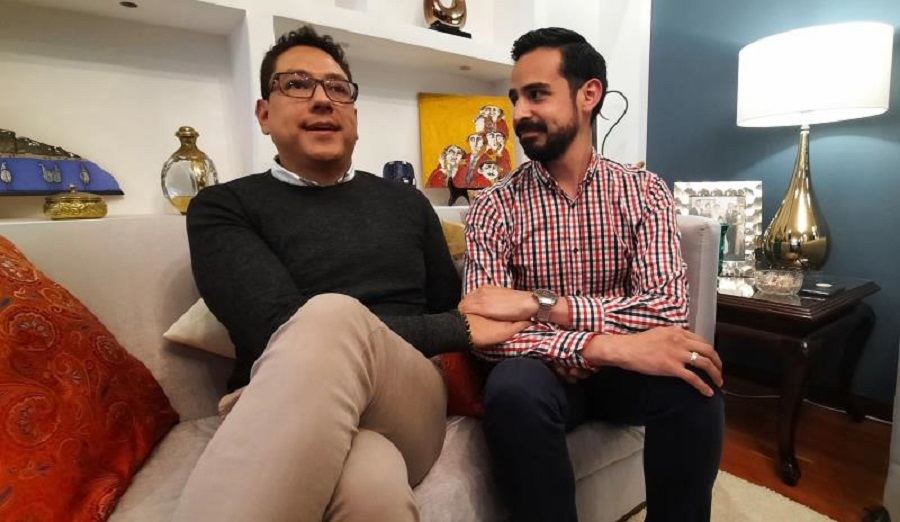RIO DE JANEIRO, BRAZIL – The union between Andrés Fernández, a 39-year-old attorney, and Ignacio Bacarreza, a 31-year-old political scientist, in La Paz, could lay the foundations of a legal formality under the figure of “cohabitation commitment,” notarized to guarantee property succession in the event of death of either of them.
Both said that their case did not initially seek to “attract attention,” but now it can serve as “an incentive” for many people to “find ways” to complement their lives and overcome discrimination.

PATH OF DISCOVERY
Andrés and Ignacio discovered, each one on his own, their sexual orientation in their 20s, after several experiences of “a normal heterosexual life” and then going through a process of personal “acceptance,” as they recalled.
In the case of Andrés, an only child in his family, an accident 16 years ago brought to light his sexual identity, which at that time, due to the seriousness of his condition and the efforts of his family to guarantee his recovery, had been “put on hold,” he said.
Ignacio recalled that when he decided to come out to his family, his sisters’ reaction was “very good” although the news was “shocking” and that the support of several of his friends “helped to normalize the situation at home” with his parents.
The relationship between the two began with a mutual friend and conversations over the Internet in which their interests in art, music and painting predominated until they met in person a few months later, something that occurred 6 years ago.
Ignacio pointed out that the relationship has been “good, beautiful and healthy” and that it happened precisely when both were “in a good moment of their lives to proceed to the next stage.”
A LEGAL AND FORMAL ACT
The first serious step was to apply for a bank loan to buy an apartment as “co-debtors for 30 years,” something that only one of the three banks granted them, since the other two required some kind of kinship and offered several excuses when the type of relationship between the two men came to light.
Andrés said that during last year’s quarantine due to the Covid-19 pandemic they realized that they were “ready to take the step” to enter into a union, and that although they thought about getting married abroad, it would be of no use in their intention to live in Bolivia.
That’s when “the issue of succession” came up, and how to “protect” the other should one of them die, precisely because of the pandemic, he said.
The intention was to go “beyond the symbolic ceremony” and to have their families’ recognition to “respect” what they had been building together with a “commitment of coexistence” with the same rights and duties as those of a marriage or a business relationship, which was finally approved by a notary, Andrés said.
“The families sign as “witnesses” and accept the clauses establishing that “in the event of the death of one or the other, they will respect the survivor’s right” over the common property, he explained.
WITHOUT STATE OR ECCLESIASTICAL RECOGNITION
In turn, Andrés maintains that what they did is not to “mock the State” but rather that it is based on legal issues regarding succession and that the families of both “are accepting and respecting” their decision taken in mid-September last year.
Spiritually, Andrés and Ignacio consider themselves deep believers who practice “the Catholic faith with fullness” and believe “in the principles of love and love thy neighbor” and that although the religious institutionality follows a different path, they leave everything to their personal relationship with God.
Andrés and Ignacio are the second homosexual couple in Bolivia to find a form of legal recognition of their union; the first was David Aruquipa and Guido Montaño who, through a different process, won a lawsuit against the State that finally and after several years recognized their civil union in December 2020.

